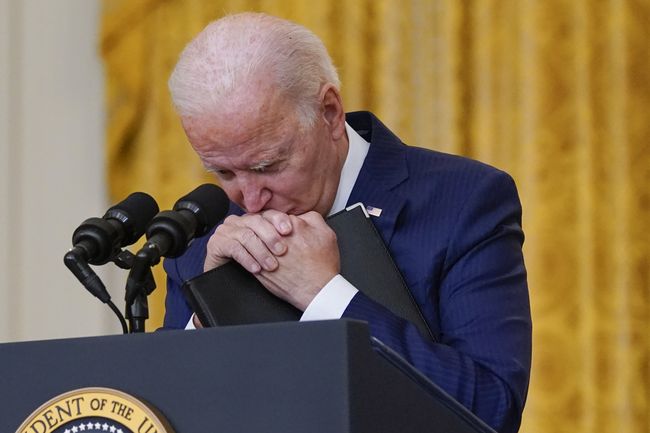
Joe Biden
STRATEGIC ASSESSMENT. Multiple American officials expressed concern over reports that Russian President Vladimir Putin plans to move tactical nuclear weapons into Belarus, though the U.S. has not yet seen any moves by Russia to do do, National Security Council spokesperson John Kirby said Sunday.
“We have not seen any indication that he’s made good on this pledge or moved any nuclear weapons around,” Kirby said during in interview on CBS’s “Face the Nation.” “We’ve, in fact, seen no indication he has any intention to use nuclear weapons, period, inside Ukraine.”
The White House led reactions in a shocked America with a call for tightening gun control in the US after a 28-year-old woman opened fire at a private Christian elementary school in Nashville, killing six, including three children.
“While you’ve been in this room, I don’t know whether you’ve been on your phones, but we just learned about another shooting in Tennessee – a school shooting – and I am truly without words,” first lady Jill Biden said at an event in Washington as reports of the shooting at the Covenant School began circulating. “Our children deserve better. And we stand, all of us, we stand with Nashville in prayer,” she added.
The United States is now the biggest supplier of crude oil to the European Union. In December, 18% of the bloc’s crude imports came from America, EU data office Eurostat said Tuesday.
That is a big turnaround. Russia was until recently the bloc’s top supplier of crude, accounting for as much as 31% of total imports until the end of January 2022, according to Eurostat. The US, meanwhile, came a distant second, with a maximum 13% share.
U.S Treasury yields climbed as fears of a crisis in the banking sector were assuaged and investors assessed what could be on the horizon for the U.S. economy and Federal reserve policy decisions. The yield on the 10-year Treasury was trading at 3.547% after rising more than 1 basis point. The yield on the 2-year Treasury was nearly 8 basis points higher at 4.041%.
China and the U.S. are in a race to build up their world power blocs, and both are using the same pressure point: the war in Ukraine. Last week, China’s leader Xi Jinping spent three days in Russia, solidifying his “no limits” partnership with Russian President Vladimir Putin. On Tuesday, U.S. President Joe Biden kicks off his second Summit for Democracy — aiming to rally world leaders around principles of freedom, rule of law and human rights. The not-so-subtle subtext: the world needs to unite against China and Russia.
In Biden’s alliance of democracies, Europe has been at best ambivalent on China. Some of the most important countries, such as France and Germany, have worried that decoupling from China would cause too much economic pain.
The biggest banking scare since the 2008 financial crisis will ricochet through the economy for months as households and businesses find it harder to gain access to credit. That’s the scenario facing the US after the collapse of three regional lenders, and a giant global one, over an 11-day span, according to several economists. Federal Reserve Bank of Minneapolis President Neel Kashkari, in a March 26 interview on CBS’s Face the Nation, said the turmoil “definitely brings us closer” to a recession and noted that officials are closely watching for signs of a widespread credit crunch.
The White House said it has new evidence that Russia is looking again to North Korea for weapons to fuel the war in Ukraine, this time in a deal that would provide Pyongyang with needed food and other commodities in return. It’s the latest accusation that Russia, desperate for weaponry and restricted by sanctions and export controls, is turning to “rogue” nations to help it continue to prosecute the 13-month-old war.
President Joe Biden’s efforts to put a floor under the rapidly deteriorating relationship with China have not yet succeeded, Biden’s top Asia adviser said. “There’s a recognition that in many respects our efforts to build a foundation or floor under the relationship and guardrails have yet to be successful,” White House Indo-Pacific Coordinator Kurt Campbell said at an event at the Center for a New American Security.
The US economy grew at a slower pace in the fourth quarter than initially estimated, as consumer spending continued to trail off. Inflation-adjusted gross domestic product — the broadest measure of economic activity — increased 2.6% for the final three months of 2022, according to the Commerce Department’s third and final reading for the quarter. Economists were expecting GDP growth to hold steady at 2.7%.





